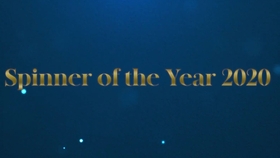The Controversial Theories of Peter Duesberg: A Deep Dive into His Views on HIV and Cancer
Guide or Summary:Introduction to Peter DuesbergThe HIV/AIDS ControversyCriticism and SupportDuesberg's Views on CancerImpact on Public DiscourseConclusion……
Guide or Summary:
- Introduction to Peter Duesberg
- The HIV/AIDS Controversy
- Criticism and Support
- Duesberg's Views on Cancer
- Impact on Public Discourse
- Conclusion: The Legacy of Peter Duesberg
**Description:**
Introduction to Peter Duesberg
Peter Duesberg is a prominent figure in the fields of molecular biology and virology, best known for his controversial views regarding the causes of AIDS and cancer. Duesberg, a former professor at the University of California, Berkeley, gained notoriety in the 1980s when he challenged the mainstream scientific consensus that HIV is the causative agent of AIDS. His theories have sparked significant debate and controversy within the scientific community and beyond.

The HIV/AIDS Controversy
Duesberg's assertion that HIV does not cause AIDS has led to a significant divide among scientists, public health officials, and the general public. He argues that AIDS is primarily caused by factors such as drug use, malnutrition, and other environmental influences rather than a viral infection. This perspective has garnered a following among some groups, particularly those skeptical of conventional medical practices. However, it has also drawn criticism from many in the scientific community, who argue that his claims are not supported by substantial evidence.
Criticism and Support
While Duesberg has a dedicated group of supporters who appreciate his contrarian views, he has faced considerable backlash from established scientists and health organizations. Critics argue that his theories undermine public health efforts to combat HIV/AIDS and may contribute to stigma against those living with the virus. Furthermore, many researchers point to a wealth of evidence demonstrating the link between HIV and AIDS, including clinical studies and epidemiological data.

Duesberg's Views on Cancer
In addition to his controversial stance on HIV/AIDS, Peter Duesberg has also made significant claims regarding cancer. He posits that cancer is not primarily caused by genetic mutations or viruses, as widely believed, but rather by aneuploidy—an abnormal number of chromosomes in cells. Duesberg's theory suggests that this chromosomal instability leads to cellular dysfunction and cancer development. While this perspective has intrigued some researchers, it has also faced skepticism, as the majority of cancer research continues to focus on genetic and viral factors.
Impact on Public Discourse
Duesberg's theories have had a notable impact on public discourse surrounding both HIV/AIDS and cancer. His views have been embraced by some activists and alternative health proponents who advocate for non-traditional approaches to health and disease. This has led to a broader conversation about the importance of questioning scientific consensus and exploring alternative explanations for complex health issues. However, it also raises concerns about the potential dangers of misinformation and the consequences of rejecting established scientific knowledge.

Conclusion: The Legacy of Peter Duesberg
Peter Duesberg remains a polarizing figure in the scientific community. His controversial theories continue to provoke discussion and debate, highlighting the complexities of scientific inquiry and the challenges of addressing public health issues. While his views may not align with the majority of scientific evidence, they serve as a reminder of the importance of critical thinking and the need for ongoing dialogue in the pursuit of knowledge. As research continues to evolve, the legacy of Peter Duesberg will likely remain a topic of interest for years to come.